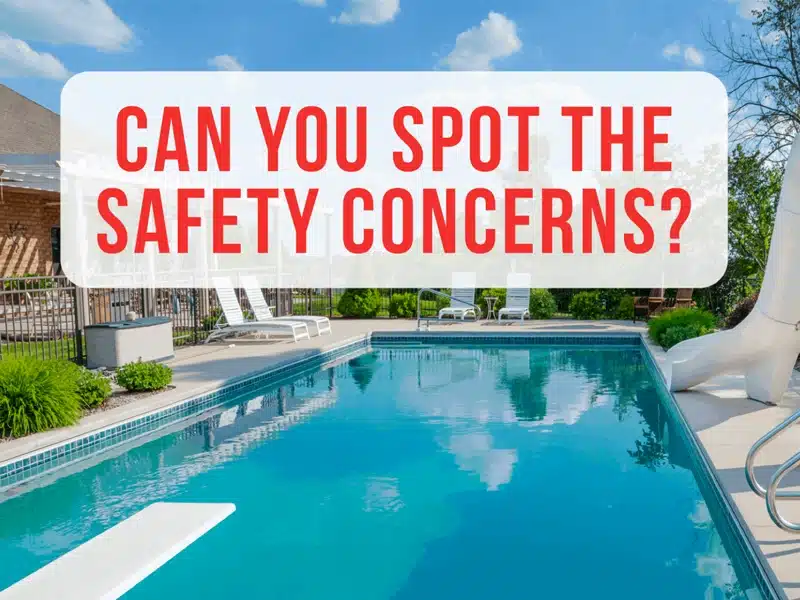Vermont Airbnb Laws and Regulations – Current Requirements in The Green Mountain State
Vacation rentals have long been a part of Vermont’s landscape, with their popularity only amplified by the rise of Airbnb, Vrbo, and similar platforms over the past decade. Now, state and local governments are working to keep pace with the industry, aiming to balance the economic benefits of tourism with the needs of local communities. Recent regulations, including updated taxes, insurance requirements, and zoning considerations, reflect Vermont’s commitment to maintaining this balance.
For short-term rental owners and Airbnb hosts, staying up-to-date on these changes is key to running a compliant, safe, and community-conscious rental. If you have questions about short-term rentals in Vermont, our agents are experts in vacation rentals and can help you understand your risks. Call 888-631-6680 today.
Unsure if your insurance meets Vermont’s latest requirements? Many policies leave gaps that could lead to costly claims, and research shows that 90% of short-term rental owners are unknowingly misinsured. A quick, free 15-minute consultation can reveal hidden gaps in coverage, giving you peace of mind and confidence in your insurance protection.

State-Imposed Regulations in Vermont
Registration Requirements and Airbnb Laws
The draft ordinance outlines new Airbnb laws for Vermont , including the following registration requirements:
- A person shall not operate or maintain a short-term rental unless he or she registers with the Department and obtains and holds a valid certificate of compliance.
- All occupancy taxes on the short-term rental unit required pursuant to 32 V.S.A chapter 225 are paid in a timely manner.
- The Commissioner may inspect, through his or her duly authorized officers, inspectors, agents, or assistants at all reasonable times, a short-term rental and the operator’s records related to the short-term rental.
- A person may not offer all or part of a dwelling unit as a short-term rental unless the person has occupied the dwelling unit as his or her primary residence for (a) 270 days or the preceding year; or (b) if the person has owned or leased the dwelling unit for less than a year, more than 70 percent of the days that the person has owned or leased the dwelling unit.
While the new ordinance doesn’t include a short-term rental insurance requirement, the Department of Health and the Department of Public Safety’s Division of Fire Safety is planning to prepare a packet for hosts regarding their responsibility for health and safety and their financial obligations. This would also include a brief description of the importance of reviewing their property and liability insurance for proper coverage.
This varies across the state with city-specific Airbnb laws: Burlington, Stowe and Killington address short-term rental requirements directly. Please see below for more details.
If you are in need of short-term rental insurance or would like to upgrade your current Airbnb/Vrbo insurance, contact Proper Insurance, the nations leading vacation rental insurance provider with the most comprehensive policy on the market. Call 866-260-0176 or submit online for a quote.
Implements New Surcharge
As of August 1, 2024, Vermont has implemented a new 3% surcharge for short-term rental bookings. This is on top of the already existing rooms tax at (9%), any local taxes (1%) and the meals and room tax (9%) if meals are included with the stay. To learn more about the 3% surcharge visit Vermont’s Government Website.
Burlington, Vermont
August 2022 Airbnb Law Limits Number of Short-Term Rentals
Airbnb Law in Burlington, Vermont, requires short-term rental owners to register with the city and limits the number of short-term rentals to one, with a maximum of three bedrooms.
The policy enacted by the Burlington City Council took effect in August 2022 and seeks to balance short-term rental owners and community concerns by curtailing investment firms from buying rental properties for short-term occupancy. In addition to the limitation on rentals, the ordinance requires registration with the city.
- Licensing Requirements: The items below should be included in the registration application:
- The address of the property.
- The number of dwelling units at that address.
- The number of rental units at that address.
- The maximum number of residents in each rental unit.
- The number of sleeping rooms in each rental unit.
- The number of families living in each rental unit.
- The number of unrelated adults in each rental unit.
- The number of vehicles owned or used by residents of the premises and the number of parking spaces that are dedicated to the rental units at the property.
- The name, address, phone number, driver’s license, and state and military status (active or not) of the property owner, and if the owner is a corporation, the registered corporate agent and the president of the corporation and his/her name and address, and if the owner is a partnership, the registered partnership agent, and the names and addresses of the general partners.
- Local Manager: The name, address, and phone number of any local (within Chittenden County) managing agent. All owners who do not live within Chittenden County are required to designate a managing agent located in Chittenden County who is empowered to represent the owner in matters concerning compliance with this chapter.
- Point of Contact: The name, address, and phone number of an emergency contact for this property. All properties must have an emergency contact within Chittenden County.
- More Information: Additional information about the new laws and regulations can be found on the Burlington, Vermont City Website.
As the nations leading short-term rental insurance provider, Proper Insurance is a trusted expert in the vacation rental industry. If you’d like a complementary coverage comparison of your current short-term rental insurance, give us a call at 866-260-0176 or submit online for a quote.
Stowe, Vermont Airbnb Regulations
Updated STR Laws for Hosts in Stowe
The Town of Stowe has introduced comprehensive short-term rental (STR) regulations under its Short-Term Rental Registry Ordinance, applying to short-term rentals operating for 14 days per year (or more). Beginning May 1, 2025, STR owners are required to register their property with the City, appoint a contact person, and ensure emergency services have reasonable access to the property in case of emergency. Read more updated Stowe, Vermont, Airbnb Laws below:
- Registration: All operators of short-term rentals in Stowe are required to register their property through Stowe’s online registration portal. Registration must be completed prior to renting out the property, and each unit must be re-registered annually. The annual registration fee is $100 per unit.
- Zoning: STRs are permitted in certain zoning districts, subject to compliance with local
zoning regulations. Operators should consult the Town of Stowe Zoning Regulations for
specific district allowances. - Taxes: STR operators are required to collect and remit the Vermont Rooms and Meals
Tax (9%), the 3% short-term rental surcharge, and a 1% Town of Stowe Local Option Tax. Registration and tax payments can be managed through the Vermont Department
of Taxes. Operators must display their Vermont Meals and Rooms Tax account number on all advertisements and listings. - Occupancy Limits: The number of guests allowed per STR is determined by the property’s size and septic capacity.
- Point of Contact: STR owners must identify a Designated Responsible Person (DRP) who is available to respond to issues or emergencies in person within 45 minutes of being contacted by public safety officials.
- Trash: Trash and recycling must be stored in approved containers and kept out of public sight except on designated waste collection days.
- Parking: Guest vehicles must be parked on-site within designated parking areas specified by the property owner. Parking on public streets or in a way that obstructs traffic is prohibited.
- Noise: Quiet hours are from 10 p.m. to 8 a.m.
- Safety & Compliance: Properties must feature working smoke detectors and carbon monoxide detectors. Fire extinguishers must be accessible within the property, and STRs are required to provide year-round, 24-hour access to emergency services through a Fire Department-approved lockbox.
- Fines & Penalties: Fines for non-compliance begin at $100 for the first offense, $200 for the second offense, $300 for a third offense, and $400 for fourth and subsequent offenses. Repeat violations may be subject to steeper fines and penalties.
- More Information: For more detailed information, visit the Town of Stowe’s Short-Term Rental Registration page.
Killington, Vermont
Declaration of Insurance Now Required
As of 2020, Airbnb laws in Killington, Vermont, now include an insurance requirement, amongst other changes to previous ordinances. The change was introduced amidst an ongoing court case involving a short-term rental that was granted a safety permit allowing up to 28 occupants. Despite the permit, the house underwent septic failure as it was not able to sustain the number of guests. City officials hope to determine regulations and safety guidelines to lower the likelihood of such a scenario occurring again and to safeguard owners against potential liability claims.
New requirements include:
- The Short-Term Rental of a dwelling unit (using Airbnb, Vrbo, Vacasa, etc.) within the Town of Killington requires an STR Registration from the Zoning Administrator.
- Parking by STR guests must be off-street. On-street parking is not permitted.
- An inspection report with occupancy approved by the state Division of Fire Safety is required for STRs with an occupancy of greater than 8 guests.
- The “Short Term Rental Safety, Health, and Financial Obligations” form found on the Vermont Division of Fire Safety website must be completed and posted within all STR units
- A declaration of insurance coverage specific to the renting of short-term vacation rentals is required.
While the city is not specific in what kind of insurance is required, short-term rental owners should be advised that a standard homeowner’s policy will not cover them adequately. All homeowner’s policies carry a ‘business activity exclusion’, and as a short-term rental operator, you are running a business. When you mention ‘business activity’ while trying to make a claim with your homeowner’s policy, you will be denied and let to pay out of pocket.
Upgrade Your Short-Term Rental Insurance Today
Proper Insurance protects homes in all 50 states and the District of Columbia, completely replacing inadequate Homeowners/Landlord policies. Their comprehensive coverage meets or exceeds standard short-term rental requirements with $1M Commercial Liability (CGL) and unmatched protection for your property and revenue. Additional custom coverages include guest-caused theft/damage, amenity liability (bikes, kayaks, hot tub, etc.), bed bugs, fleas, squatters, and more.
Please note: The information provided is intended as a guide and may not be comprehensive or current. Regulations may change and could vary by area or situation. Always consult local authorities or a legal professional to ensure you have the most accurate information for your short-term rental property.



